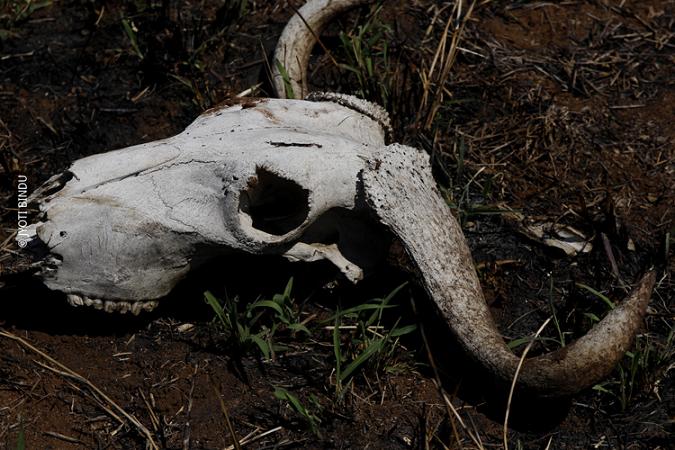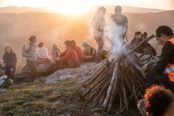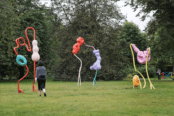[dropcap style=”font-size:100px; color:#992211;”]I[/dropcap] knew Lesotho would be hard. At 1600 meters, the country’s lowlands are still higher than almost any other place I’ve ever experienced.
At nearly 3000 meters, the mountains of the Central Region around Thaba-Tseka, have tested my lungs, my legs, and my tolerance for the cold.
Maybe visiting this mountain kingdom in the dead of winter was a poor decision.
I’m not going to deny that this has been the most challenging leg of the journey so far. At 2800 meters, the air is always cold. At night, temperatures plummet, dashing any idea I had of camping my way through the country. Even indoors, without electric heating, the cold gnaws away at my bones, confining me to an early bedtime beneath layers and layers of blankets.
It spills its way into everything, and at times I feel as if I shall never be warm again. On the bike, the sun keeps the cold at bay, but too much time dawdling in the shadows of a mountain quickly reminds one that the cold is real and that the ride must be completed before the night falls. Without the heat of an African sun, the wind bites, and the threat of rain or even snow can quickly ruin the prospects of a day’s ride.
I became painfully aware of this on the road to Thaba-Tseka, on a fifty kilometer stretch of gravel known as ‘The Pass of the Jackals.’ The day may have started out warm enough in the valley surrounding the town of Marakabeis, but it soon grew chill, as clouds blanketed the sky and hid even the dimmest rays of sunlight.
Five kilometers uphill, then ten, then fifteen; finally after twenty kilometers, you think it’s impossible to climb anymore, there’s nothing left but sky. You’re up on top the roof of Africa, above 2800 meters, but then you round the mountain, and there, in the distance, you can just make out that white bush taxi, the one that passed you over half an hour ago, a mere speck, climbing still and disappearing into the fog of a cloud.
The weather here is dangerous. In these mountains, it can change in an instant, and the warm air that hung over the valley has risen, condensed, and now patters at your helmet, your jacket, your panniers, and the stones that make up a heavily pitted road.[quote]the longer that I’m on the bike,
the more it becomes an
extension of myself[/quote]
The view is stunning. Somehow, the road manages to chart a course over the very tops of the mountains, at times staring down into immense chasms on either side: wide, fertile valleys reached only by foot or by horse. A herd boys moves with his cattle, goats, and sheep, a solitary figure in gum boots, a blanket wrapped around his shoulders, a woolen balaclava covering everything but his eyes, walking stick in hand, a mangy, but powerful, dog never far away.
We see one another across kilometers of open space, both thinking the other is equally crazy: him for standing out in a field with virtually nothing to keep him safe and warm but a blanket from Pep, the South African equivalent of a shitty Wal-Mart, me for cycling through such terrible weather in a search for, what, a sense of adventure? A mark of pride that only I can carry with me, that only I may truly know?
I’ve had several people ask me what prompted this journey, and, especially here, they wonder, “Why Lesotho? Why Lesotho in winter?” The only answer I can come up with is pure, unadulterated masochism. It is a personal journey, one that I knew would challenge me, and one that I wanted to experience, to test myself and take a measure of my own character.
I anticipated a physical challenge, especially from the mountains. I’m from Indiana, a part of the United States that, when asked for a description, I will openly reply, “It’s about as flat as the table we’re sitting at.” I never even had stairs in my house, and when I ran cross country in high school, the only incline training we could get consisted of a set of bleachers overlooking the football field.
Here, in Lesotho, the altitude alone is enough to make you question the sanity of such an expedition, one undertaken with virtually no training other than zipping through London traffic on my way to work or school. Here, in Lesotho, your lungs simply never feel like they can get enough oxygen. Climbing these mountains, your body aches for a full breath of air, and every gasp feels like you’re drowning, clawing f or an invisible lifeline you’ve always taken for granted.
or an invisible lifeline you’ve always taken for granted.
What I couldn’t have anticipated were the mental challenges that would await me, as the rugged landscape has tested, to the breaking point, both bike and rider. An early attempt to leave the pavement and take to the gravel roads from Mohale’s Hoek to Malealea proved more difficult than I could have imagined. In Lesotho, there is only one tarred road. Everything else is paved with, well…nothing. Cow shit, maybe, and rocks. The heavy summer rains carve ruts into the road that lead off the sides of mountains. Stones jut from all angles, some lodged in the earth, some free to slip and fly, forcing the rider to chart a haphazard course or risk damage to gears, spokes, wheels, and brakes.
I fear that the road has not at all been kind to the bike, and after a day and a half of riding on these back roads, forced to push the bike up hills too rocky and rugged to stay in the saddle, a bolt that held my pannier rack sheared off at the base, the result of a particularly brutal downhill jolt and a particularly large rock thrown up by the front wheel.
A hitch and a trip to the hardware store fixed that problem, but only a few days later, I realized that the valve stem on my front tire had snapped, ruining the tube and leaving me with no backups until I reach South Africa. I’ve had to ride gingerly, regardless, as the pannier rack, bent from the incident with the broken bolt, touches the back wheel at even the slightest bump, and the risk of another broken bolt has been almost too much to bear.
This frustration only compounds the mental exhaustion of long days in the saddle, and added to the physical toll of bad roads, high altitude, and inclement weather, these last few days of riding have been unbelievably difficult on both mind and body.
What Lesotho has broken, however, Lesotho will mend. The bike and I are currently taking some time apart. I’ve been fortunate enough to hook up with a Peace Corps Volunteer who teaches at a trade school, and her fellow teachers have been so good as to give the bike the care it needs. I, meanwhile, am taking the week off to experience Basotho culture in the remote highlands of the Central Range.
Some time apart has already done us some good, as, like a lover after a particularly petty argument, I realize that I miss the company my bike. I miss the freedom of the road and the thrill of feeling as if you’re on top of the world. We’ve come through some pretty tough challenges already and seen some pretty amazing things together, and I want to keep on going. Lesotho can bend, but it can’t break, and it may turn out that the country acts as a crucible, forging a stronger bond between us.
Maybe it sounds silly to speak of an inanimate object in such a way, but I’ve found the longer that I’m on the bike, the more it becomes an extension of myself, just as a backpack, a water bottle, or a warm jacket becomes indispensable, and thus, invaluable on a long trip. Every item I carry with me carries with it the scars of experience, and thus become symbolic of everything I’ve overcome. The road may be hard, but it rewards those who suffer its challenges.
Photos: Jyoti Bindu
Sterling Carter writes on the intersection of political economy, arts and culture, and human rights. He has over five years’ experience on African development, violence and conflict with organizations including Human Rights Watch, Global Witness, and Search for Common Ground. He is originally from Flora, Indiana but pulled up stakes long ago.


















